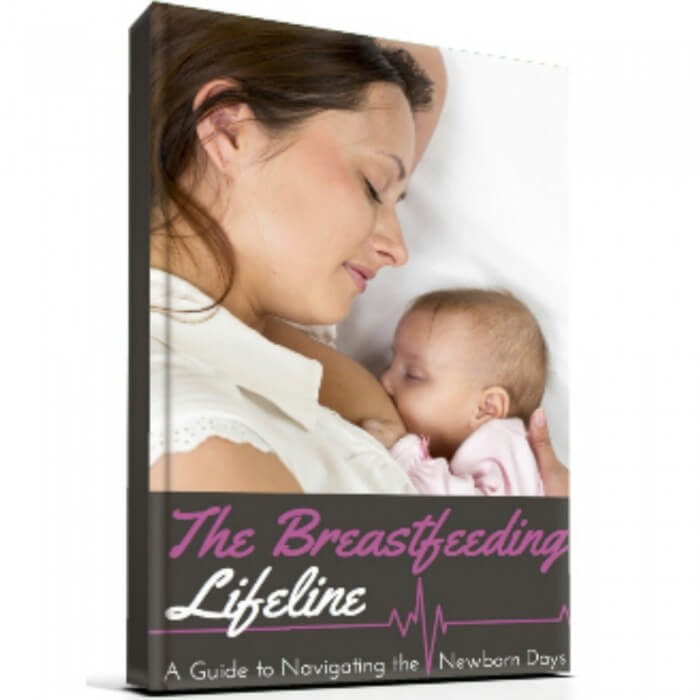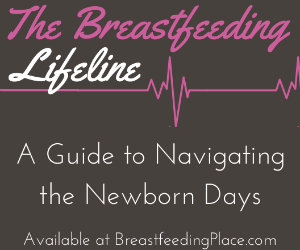. The nutritional advantage breast milk provides translates into real, tangible short and long-term health benefits of breastfeeding for baby. Despite scientific advances, breast milk is still superior to formula.
The nutritional advantage breast milk provides translates into real, tangible short and long-term health benefits of breastfeeding for baby. Despite scientific advances, breast milk is still superior to formula.
Before we dig in, I want to mention that the primary source I used in my research for this post is the report: Breastfeeding and Maternal and Infant Health Outcomes in Developed Countries.1 This document includes information from 400 different studies on breastfeeding.
As the title states, it examines breastfeeding outcomes in only developed countries. This is significant because some argue that we see such positive outcomes from breastfeeding because parents in underdeveloped or third world countries don’t have access to good water supply or adequate breast milk substitutes. This report has taken that argument out of the equation.
Protection from Illness Now
When you breastfeed your baby, you’re giving your little one immediate protection from illnesses. Mother’s milk contains millions of white blood cells. The breast milk passes those antibodies directly to the baby. Breast milk has antiviral, antibacterial, and antiparasitic factors. These all work together to keep your baby healthy.
Breast milk has such amazing antiviral properties it actually appears to kill the HIV virus.2
Lisa Marasco and Jan Barger write in Examining the Evidence for Cue feeding of Breastfed Infants3 about the fascinating ability of a woman’s body to manufacture antibodies that a baby needs.
Even more amazing, if a baby contracts an illness that mom has not been exposed to previously, he will transfer this organism through his saliva to the breast. There, the body manufactures antibodies. Then the baby receives those antibodies via the milk. This directly helps the baby fight his illness. Mothers who wean their babies from the breast during the first and even second and third years of life often notice that their child becomes sick more than before, or for the first time.
More immune system protection
What’s more, breast milk promotes healthy gut flora.4 Humans require certain bacteria in their intestines. These bacteria aid in nutrient absorptions and immune system development. This translates into infants that suffer from less gastrointestinal distress: less gas, diarrhea, and constipation. Researchers see a 64% reduction in non-specific gastroenteritis in breastfed infants compared with infants who were not breastfeeding.
There is also a 72% reduction in the risk of hospitalization due to lower respiratory tract diseases in infants less than 1 year of age who were exclusively breastfed for 4 months or more.
Researchers found less ear infections in breastfed infants—23% lower incidence than exclusively formula-fed babies. Experts associate breastfeeding with a 36-50% reduction in the risk of SIDS compared to not breastfeeding. Those are some pretty amazing benefits!
Protection from Disease Later in Life
When you breastfeed you’re not only benefiting your baby in the immediate, but promoting life-long health. Research shows breastfeeding to prevent everything from dermatitis to diabetes and many in between.
Skin Problems
Exclusive breastfeeding for at least 3 months was found to have a 42% reduction in atopic dermatitis compared with breastfeeding for less than 3 months.
Asthma
A minimum of 3 months of breastfeeding is associated with a 27% reduction in the risk of for those without a family history of asthma and a 40% reduction for those with a family history of asthma.
Type 1 Diabetes
Babies who have been breastfed for at least 3 months have a 19-27% reduction in incidence of childhood Type 1 Diabetes.
Type 2 Diabetes
There is a 39% reduction in risk of Type 2 diabetes later in life for people that were breastfed as infants.
Cancer
Breastfeeding for at least 6 months is associated with a 19% decrease in risk of childhood acute lymphocytic leukemia. Studies show a 15% decrease in the risk of acute myelogenous leukemia.
Dental and facial development
Adults who were breastfed experience fewer cavities throughout life. Formula-fed babies can have more problems with jaw alignment and are more likely to need orthodontic work.
Psychological, behavioral, and learning problems
These are less of a problem in individuals who were breastfed as babies.
Better vision
Visual development is more advanced in breastfed babies being particularly noticeable in babies born premature.
Intelligence
Though intelligence is mediated by both genetic and environmental5 experiences, studies6 have clearly shown a significant positive correlation between breastfeeding and intelligence.
Obesity
Adults who have been breastfed are less likely to struggle with obesity as adults. One exception to this is when mom consumes a high quantity of trans-fats. This actually increases the chance that the baby will eventually be overweight. It increases mom’s chances of having weight problems, too. Breastfeeding moms (and everyone) should focus on healthy real saturated fats and omega-3 fatty acids.
Breastfeeding offers your baby a clear advantage. It isn’t always something that comes easy to every woman, but it’s worth getting help and perserving. We hope this site can offer your the encouragement and support you’re looking for!
Why is breastfeeding important to you?






[…] set on pumping, even though I could have just used formula. I mean, I am sure you are aware of all the benefits for breastfeeding, and that’s great, but I’ll tell you a secret to why I pumped. It was because I was […]